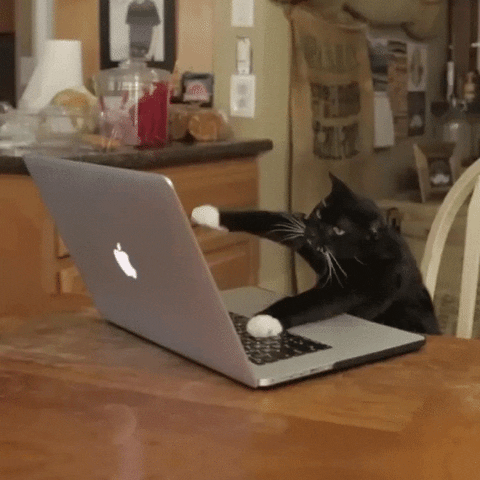I’ve attempted to sit and write this about 67 times in the last five days. I’m prone to distraction and prone to work in crevices, rather than creating space for deep, focused work. Because WHAT IF I MISS SOMETHING?! What if something even better happens while I’m focused?

When I believe the deep fear of missing out, I stay limited and ineffective.
I use this Enneagram lesson every day. It informs how I plan my day for effective work, when and how I respond to clients and colleagues, and even how I organize my office space.
So I use that awareness to choose actions that encourage my focus and productivity. I’m traveling this week. Seven planes in seven days, three locations, two speaking events, and a girls weekend smooshed in between. I really wanted to write this to you before I left on this trip. But I gave in to the fear of missing out.

So here’s the reset: Rather than a trying to accomplish 82 things this week and doing all of them halfway (or worse), I’ve planned for four. Fours tasks I can do well and focus on while I’m on the road. This post to you is one.
The real question: Why should this matter to you?
You can use your knowledge of your Enneagram type to save you millions of dollars and be more productive. (YES BOTH!)
I’ll come back to the millions…
Your Enneagram type impacts your effectiveness too. Not understanding how your motivations play out in the way your do work keeps you small and stuck. You will avoid writing the proposal, miss line items in the P&L statement, and lack the creative energy to solve the problems that come your way.
And it ripples to your team and organization. Ignoring how you individually (and each individual team member) works best, costs you unnecessary conflict, disengagement, decreased effectiveness, and diminished well-being.
So about those millions…
We’ve all heard some version of this phrase: People don’t leave jobs. They leave bad leaders and environments. A conservative estimate of the money: each employee lost costs 1½ times their salary to replace. In 2022, the average turnover rate was 9.12%. In a small organization of 250 people, that’s about $2.75 million a year.
Imagine: increased employee engagement, improved communication, reduced unproductive conflict, and increased well-being. Forget the money saved; I want to feel that type of joy, belonging, and confidence at work.
And now you’re asking, well how do I use the Enneagram to get this, Jenn? I’ve got you!

Quick Tips for Each Type to Get Work Done
Enneagram Eight
Be aware:
Of your tendency to be the intense solo task completer.
What to do:
Delegate tasks, but also invite others into identifying the problem. Helps to have a trusted friend who can tell you you’re acting a little extreme.
Enneagram Nine
Be aware:
Of your tendency to complete tasks, but not the ones that need doing.
What to do:
Create rhythms that help you complete tasks without extra decisions. Invite others into your decisions to help you decide what you want (not tell you what to do).
Enneagram One
Be aware:
You might avoid work if it can’t be done perfectly or look like someone else’s.
What to do:
Jump in and start with your best thinking and edit along the way.
Enneagram Two
Be aware:
Of your tendency to be available can reduce time to accomplish your tasks.
What to do:
Block time for tasks (turn off notifications, etc.) that are yours. Also, make sure those tasks are for your work, not just helping others.
Enneagram Three
Be aware:
Of your tendency to be over-productive and burn out on the way to the goal.
What to do:
Allow other collaborators to do tasks too. Also, practice time away from productivity, especially in solitude. You are a human being, not a human doing.
Enneagram Four
Be aware:
Of your tendency to set really big goals and then feel all the longing (or comparison!) without doing the work.
What to do:
Set smaller milestone goals, and do the work to accomplish those goals. And grab a friend to encourage you.
Enneagram Five
Be aware:
Of your tendency to research, research, research.
What to do:
Create a set amount of time for research, and then move to execution, even if you don’t feel ready. An accountability buddy in your goal can really help.
Enneagram Six
Be aware:
Of your tendency to distrust yourself and want the gurus to weigh in. That can keep you from action.
What to do:
Create routines that support your tasks. Check back in with your list so you know you’re on track.
Enneagram Seven
Be aware:
Of your tendency to jump from one activity to the next, especially to avoid boring work.
What to do:
Time block your days so there is variety. Reward yourself when doing boring tasks, and even consider gamifying your activity.
Clearly, I’ve completed the task of writing this to you! But it took me knowing myself and what was keeping me from completing this work. I blocked the time and then set a stopwatch. I made myself a little game: How long could I write without doing anything else? (You’ll be pleased to know I did 37 minutes!)
How can you pick one thing from this list and apply it in your work this week?
Start with yourself, and then watch for these tendencies in your team. The more you understand and appreciate the way each person and their type works best, the more cohesive and productive your team will be.
I would love to help you and your team apply these ideas so you can leave behind the frustration and welcome high performance. Set up a time to talk with me.
COMMENTs:
0